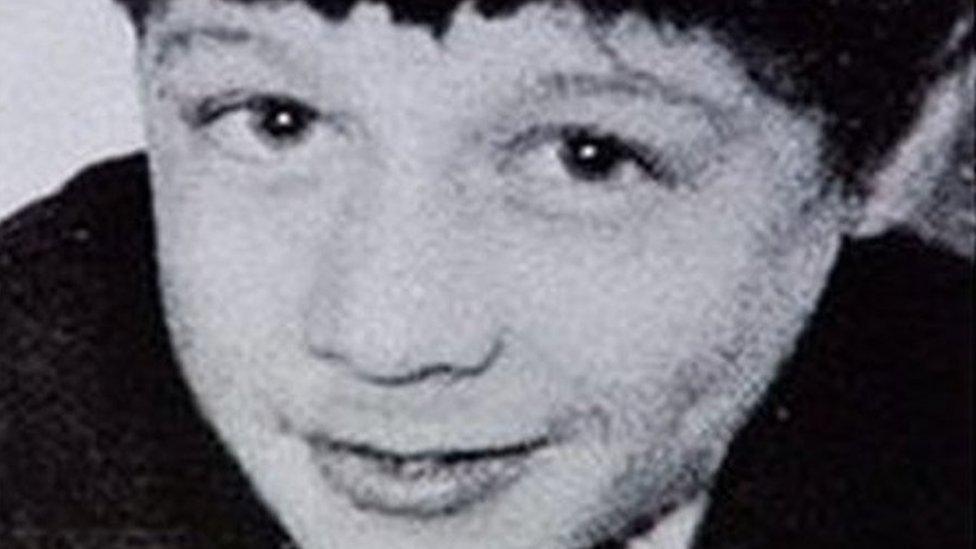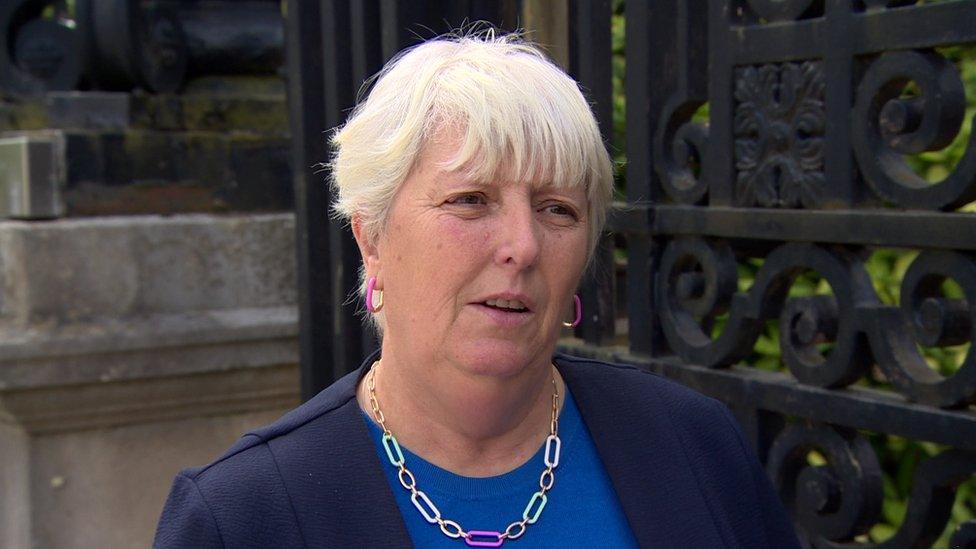Daniel Hegarty: Decision not to prosecute soldier who shot boy quashed
- Published

Daniel Hegarty was shot dead by a soldier in 1972
The family of a teenage boy shot dead in Londonderry in 1972 have successfully challenged a decision not to prosecute the soldier who killed him.
Daniel Hegarty was 15 when he was shot twice in the head by a soldier.
In July 2021 the Public Prosecution Service (PPS) announced it was dropping the prosecution of the veteran known as Soldier B.
The Court of Appeal has now quashed that decision.
In his judgment on Thursday, Lord Justice Treacy said it came after "anxious scrutiny" of the details.

Daniel Hegarty's sister Margaret Brady says her family will keep fighting for justice
The appeal was put forward by Daniel's sister Margaret Brady.
Speaking to reporters outside the court, Mrs Brady said she was blown away by the judgment and that her legal team welcomed the decision.
She said it was a very emotional day with the family wanting to pursue the appeal "not out of revenge, not out out of anger".
"I thought this was going to go on for another year," she said.
"The lawmakers should respect the law that they're representing."
Mrs Brady said she now wished for the soldier to be prosecuted.
Following Thursday's ruling, a PPS spokeswoman said the decision to drop the prosecution had been taken "after careful consideration of the highly complex legal issues encountered by prosecutors".
The PPS will now take the "necessary time to consider the full detail of the written judgment".
The spokeswoman added: "We recognise the enduring distress of the family of Daniel Hegarty arising from these complex legal proceedings. We are committed to deciding next steps and updating the family directly at the earliest opportunity."
Operation Motorman
Daniel, who was a labourer, was shot during an Army operation in the Creggan area of Derry on 31 July 1972.
It was during Operation Motorman, the name given to a military operation by the Army to reclaim "no-go areas" set up by republican paramilitaries in towns and cities in Northern Ireland.
At the time it was largest British military operation since the Suez Crisis of 1956.
Daniel's cousin Christopher Hegarty, who was 16, was wounded in the same incident.
In 2011 an inquest jury unanimously found Daniel posed no risk and had been shot without warning.
An initial inquest had been held in 1973 and recorded an open verdict.
The second inquest was ordered by the Northern Ireland attorney general in 2009 after an examination by police detectives in the Historical Enquiries Team.
In 2007 the UK government apologised to the Hegarty family for describing Daniel as a terrorist.

Troubles legacy bill
The ruling comes as the UK government is due to introduce legislation on dealing with the legacy of the Troubles in Northern Ireland.
The Northern Ireland Troubles (Legacy and Reconciliation) Bill offers a conditional amnesty to those accused of killings and other Troubles-related crimes.
Under recent amendments to the bill, conflict-related inquests must be concluded by 1 May 2024.
Any ongoing inquest that has not reached a verdict or finding would be closed.
The bill would create a new information recovery body, led by a senior judicial figure, to produce reports on hundreds of pre-1998 incidents in which people were killed or seriously injured.
The bill is opposed by all the main political parties in Northern Ireland, as well as groups representing bereaved families and victims of the Troubles.